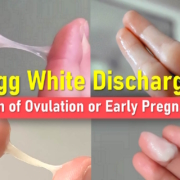hCG Levels by Week of Pregnancy: What’s Normal and What’s Not
What Is hCG?
Human chorionic gonadotropin, commonly known as hCG, is a hormone produced during pregnancy. It’s made by cells that form around the embryo and later develop into the placenta, the vital organ that supplies oxygen and nutrients to your growing baby. One of hCG’s key roles is to signal the ovaries to increase production of estrogen and progesterone, both essential for maintaining a healthy pregnancy.
This hormone enters your bloodstream and urine shortly after a fertilized egg implants in the uterus. Home pregnancy tests and doctor-administered blood tests detect hCG to confirm pregnancy. While hCG production begins immediately after implantation, levels start low and rise quickly in early pregnancy. Most at-home tests can detect hCG around 19 days after fertilization, which is why experts recommend waiting until your expected period date for accurate results. Blood tests, however, can identify hCG even earlier, as soon as six days post-fertilization.
How hCG Affects Your Body
Beyond confirming pregnancy, hCG influences your body in other ways. It may temporarily weaken your immune system, making you more prone to minor illnesses like colds. Many researchers also believe hCG plays a role in triggering common early pregnancy symptoms, including morning sickness. While these side effects can be unpleasant, they’re often a reassuring sign of rising hCG levels.
Beta-hCG Pregnancy Tests
The beta-hCG test is one of the most reliable ways to confirm and monitor pregnancy. While many people refer to it simply as an “hCG test,” there’s more to understand about this important pregnancy marker. The hCG hormone contains two distinct components:
- The alpha subunit: Similar to other hormones like TSH, FSH, and LH.
- The beta subunit: Unique to hCG and what pregnancy tests detect.
Pregnancy tests, whether urine or blood-based, specifically identify the beta subunit. There are two main types of hCG tests:
- Quantitative Beta-hCG (also called Quant hCG or Beta-hCG Quant): Measures the exact amount of pregnancy hormone in your blood (reported in mIU/mL units). This is the most precise method.
- Qualitative tests: Simply confirm whether hCG is present or not (positive / negative result), without providing specific levels . This includes most home pregnancy tests.
Quantitative tests are especially useful because they allow doctors to track hCG progression and estimate how far along a pregnancy is.

Normal hCG Levels by Week of Pregnancy
hCG levels fluctuate throughout pregnancy, typically peaking between weeks 12 and 14 before gradually declining. Below is a general hCG levels chart showing average ranges by week, calculated from the first day of your last menstrual period (LMP):
- 3-4 weeks pregnant: 9-130 mIU/ml
- 4-5 weeks pregnant: 75-2,600 mIU/ml
- 5-6 weeks pregnant: 850-20,800 mIU/ml
- 6-7 weeks pregnant: 4,000-100,200 mIU/ml
- 7-12 weeks pregnant: 11,500-289,000 mIU/ml
- 12-16 weeks pregnant: 18,300-137,000 mIU/ml
- 16-19 weeks pregnant: 1,400-53,000 mIU/ml
- 19-41 weeks pregnant: 940-60,000 mIU/ml
Keep in mind that these ranges are estimates, normal values of hCG vary widely among women. What matters most is the trend: In a healthy pregnancy, beta-hCG levels typically double every 48-72 hours during the first trimester.

When Is a Pregnancy Test Reliable?
For women trying to conceive naturally, the most reliable time to take a pregnancy test is after your first missed period or at least 15 days after unprotected sex. This waiting period allows hCG levels to rise enough for detection.
Testing After Fertility Treatments
For the most accurate results after fertility treatments, it’s important to wait the recommended amount of time before testing:
- Blastocyst Transfer: A blood test should be done about 10 days after the transfer.
- Artificial Insemination: Wait about 15 days before testing for the best results.
- Urine Tests: If using a urine test, wait an additional 2-3 days, depending on the sensitivity of the test.
Following these guidelines helps ensure more reliable and accurate results when testing for pregnancy after fertility treatments.
Why Testing Too Early Can Be Misleading
Taking a test prematurely may result in a false negative because:
- At 2 weeks pregnant, hCG levels might still be below the test’s detection threshold
- Urine tests generally require higher hCG concentrations (25-50 mIU/mL) than blood tests
While a blood test can detect beta-hCG quantitative levels as low as 5 mIU/mL, most doctors look for about 50 mIU/mL at 13 days post-implantation for confirmation.
Doubtful Results
Sometimes test results don’t give clear answers. You might experience:
- Negative tests with pregnancy symptoms: This could mean you tested too early before how long after implantation does hcg rise sufficiently
- Low positive results: May indicate very early pregnancy or potential issues
In these cases, doctors recommend retesting after 48-72 hours to check if hCG levels are doubling as expected in early pregnancy.
Blood vs. Urine Pregnancy Tests: Which One Is More Accurate?
When checking for pregnancy, both blood and urine tests work by detecting the hormone hCG (human chorionic gonadotropin). However, blood tests, especially those that measure beta-hCG, are more accurate and can offer more information about your pregnancy.
Here’s why many doctors recommend blood tests, particularly in early pregnancy:
- They can detect much smaller amounts of hCG in your system.
- They provide an exact hCG number, not just a yes or no result.
- They allow doctors to track whether hCG levels are rising as expected, which helps monitor the health of the pregnancy.
While home pregnancy tests have become more sensitive in recent years, blood tests remain the preferred option for early and reliable results—especially if you’re undergoing fertility treatments or have pregnancy-related concerns.
| Comparison Point | Blood Test | Urine Test |
|---|---|---|
| Sensitivity | Can detect hCG levels as low as 1–5 mIU/mL | Usually detects hCG starting at 10–50 mIU/mL |
| Results | Gives a specific beta-hCG number (quantitative) | Shows a simple positive or negative result |
| Detection Time | May confirm pregnancy 6 to 8 days after ovulation | Typically reliable 1 to 2 days after a missed period |
| Medical Use | Helps evaluate early pregnancy and detect potential issues | Best for quick, at-home confirmation of pregnancy |
False Positives and False Negatives
Pregnancy tests are generally reliable, but there are cases when they can produce incorrect results. These are known as false positives and false negatives.
False Negatives
A false negative means the test says you’re not pregnant when you actually are. This usually happens when:
- You test too early, before hCG levels are high enough to detect (especially before hCG levels at 4 weeks are typically measurable)
- Your urine is too diluted, making the hormone harder to detect—using first morning urine usually gives the most accurate result
False Positives
A false positive means the test shows you’re pregnant when you’re not. Possible reasons include:
- Recent fertility treatments that involved hCG hormone injections (commonly known as “trigger shots”)
- Chemical pregnancies or very early miscarriages, where implantation happens briefly but doesn’t progress
- Ectopic pregnancies or other non-viable pregnancies that still produce some hCG
If you get results that don’t match your symptoms or expectations, your doctor may recommend follow-up beta-hCG blood tests and an ultrasound to confirm what’s going on.
Understanding Abnormal hCG Levels During Pregnancy
When you receive results from a quantitative beta-hCG test, you might discover your levels are higher or lower than expected for your pregnancy stage. While this can be concerning, it’s important to remember that hCG levels vary naturally between women. Small deviations from the norm typically aren’t cause for alarm.
What High hCG Levels Could Mean
Significantly elevated hCG levels might indicate:
- A twin or multiple pregnancy (since more developing tissue produces more hormone)
- A molar pregnancy (abnormal growth of placental tissue)
- In rare cases, certain types of cancers
What Low hCG Levels Could Mean
Lower-than-expected hCG levels might suggest:
- A possible miscarriage (either threatened or incomplete)
- An ectopic pregnancy (where the embryo implants outside the uterus)
- An earlier pregnancy than originally estimated
Next Steps After Abnormal Results
Your doctor will determine the appropriate follow-up based on your specific results:
For normal or slightly elevated hCG levels: Most likely, your doctor will schedule an early ultrasound to confirm the pregnancy location and check for multiple gestational sacs if levels are high.
For low hCG levels (below 50 mIU/mL): Your doctor will probably order repeat blood tests every 2-3 days to monitor whether your hCG levels are rising appropriately. In healthy pregnancies, hCG typically doubles every 48-72 hours during early pregnancy.
When to Seek Immediate Care
Contact your healthcare provider right away if you experience:
- Severe abdominal pain
- Heavy bleeding
- Dizziness or fainting
- Shoulder pain (which can indicate ectopic pregnancy)
Remember that while hCG levels provide important information, they’re just one piece of the puzzle. Your doctor will consider these results along with ultrasound findings and your symptoms to get a complete picture of your pregnancy health.
Frequently Asked Questions
Can hCG levels be increased naturally?
It’s understandable to want to influence your hCG levels during early pregnancy, especially if you’re anxious about your numbers. However, there’s no proven way to boost these hormone levels through diet, supplements, or home remedies. Human chorionic gonadotropin (hCG) is a hormone your body naturally produces once pregnancy begins, and it rises on its own in a healthy pregnancy. The best thing you can do is support your overall well-being and follow your provider’s recommendations.
Is it possible to have a healthy pregnancy with low hCG levels?
Yes, it is. Every pregnancy is different, and beta hCG levels in pregnancy can vary widely between individuals. What truly matters is whether your levels are increasing at a steady rate. While one low reading might raise questions, it’s the trend over time that matters most. As long as pregnancy hCG levels by week are rising consistently, even if they start out low, there is often no need for concern.
What does a positive beta hCG result with low hormone levels mean?
A positive beta hCG quantitative test with relatively low numbers doesn’t automatically indicate a miscarriage or failed pregnancy. It’s important to understand that beta hCG levels by week vary significantly. In early pregnancy, a lower value might simply reflect a very early implantation. What’s more important is whether those numbers double every two to three days, especially in the early weeks.
Are hCG levels different in a twin pregnancy?
Yes, HCG levels for twins are generally higher than those in a singleton pregnancy. This is because more placental tissue is present, leading to greater hormone production. Twin pregnancy hCG levels may cause stronger pregnancy symptoms in the first trimester, such as nausea or fatigue. However, higher levels don’t always guarantee multiples, and only an ultrasound can confirm twins.
Can a negative urine pregnancy test still mean you’re pregnant?
It’s possible. Home urine pregnancy tests are less sensitive than blood tests. So, if your 2 weeks pregnant hCG levels are still low, the urine test might not detect the hormone yet. This can result in a false negative. Blood tests, on the other hand, can identify beta hCG levels as low as 5 mIU/ml, making them more accurate early on. Timing is key—testing too soon after conception can lead to misleading results.
Can hCG levels indicate an ectopic pregnancy?
In the very early stages, beta hCG levels may not differ between a normal pregnancy and an ectopic one. The difference often becomes noticeable later. In an ectopic pregnancy, the embryo does not develop properly, and hCG levels may stop rising or start to decline. Repeating blood tests every 48 hours helps doctors monitor whether the levels are increasing as expected (typically doubling every two to three days), which can aid in identifying abnormal pregnancies.
Are hCG levels different in IVF compared to natural conception?
Whether conception happens naturally or through assisted methods like IVF, beta hCG levels typically rise in a similar pattern. What changes is the timing of when testing begins. In IVF, doctors often check pregnancy hormone levels by week starting around 10 to 12 days after embryo transfer. Otherwise, normal values of hCG are expected in either case.
Should you fast before taking a beta hCG test?
No fasting is necessary for a beta hCG quantitative blood test. However, if you’re doing a home urine test, it’s best to use your first morning urine. That’s when your hCG concentration is highest, giving you the most accurate result. This helps reduce the chances of a false negative, especially in the early days after implantation.
What is the typical hCG level at 5 weeks pregnant?
HCG levels at 5 weeks can vary widely, but they typically fall between 850 and 20,800 mIU/ml. This wide range is normal. Rather than focusing on a single number, healthcare providers look at how the numbers change over time. In most early pregnancies, hCG doubles every two to three days. So, steady upward trends are more reassuring than specific values alone.
How are pregnancy tests and beta hCG tests different?
Both types of tests detect beta hCG levels, but they work differently. Home urine tests give you a simple yes or no answer and usually detect hCG when it reaches 25–50 mIU/ml. Blood tests are more precise and can detect much lower amounts—sometimes as low as 1–5 mIU/ml. These tests also provide an exact number, which can help doctors assess how far along you might be using an hCG calculator how many weeks pregnant.
While over-the-counter tests have become more sensitive in recent years, they can still result in false negatives if used too early or incorrectly. Following the instructions carefully and waiting the recommended time frame after implantation gives the most reliable results.










